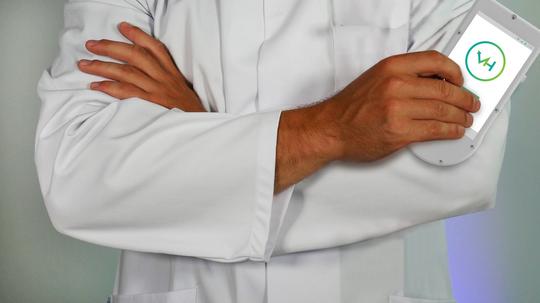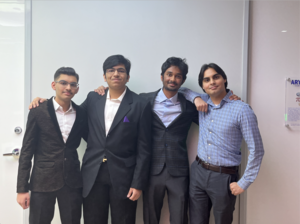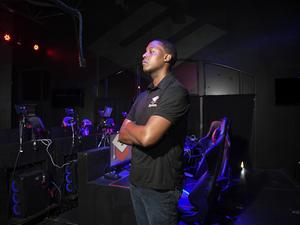
According to the Oral Cancer Foundation, about 53,000 people are diagnosed with the disease each year. Another 9,750 will likely die from the disease each year as well. In developing countries, those numbers are even higher. In 2012, more than 1 million were diagnosed in India, and due to lack of access the likelihood of catching the cancer early decreases, as does the chance of survival.
Vitrix Health, a biotech company using a handheld device to detect oral cancer and other oral diseases, is trying to beat those odds. The company is calling DFW its home base as it completes the Health Wildcatter accelerator program.
“What we wanted at the end of the day was to change the world and leave it better place,” said Ayush Kumar, co-founder and CEO at Vitrix Health. “We started focusing on different disease that should have been cured by now, or at least have better patient outcomes. We were realizing that back home a lot of people were dying of oral cancer.”
"What we wanted at the end of the day was to change the world."
Vitrix Health was founded in 2018 in Champaign, Il., when Kumar and fellow cofounders Aashay Patel and Mark O'Connor were attending the University of Illinois. After winning awards there and receiving initial funding from a student-run startup funding group, the team of four employees is calling North Texas home for now as it completes the local accelerator program here, further developing its product and business while breaking into the market.
“At the time I was like, ‘look we’re just a bunch of kids'… but we realized we were onto something,” Kumar said.
The oral disease-detecting device is currently in its testing stages but is physically being used in the field. Called the Ora1 System, the screening tool looks almost like a large iPhone with a thicker frame. Using light and biosensors, the device uses machine learning and risk prediction algorithms to process images and provide patients warnings and education on potential oral diseases they may have.
Though Kumar said testing has shown the system’s predictions to be highly accurate and it does provide education about the disease to the patient, any predictions made by the Ora1 should be followed up with by a medical professional. That’s why Vitrix Health has also developed a web app and platform to help connect patients to doctors, and also connecting doctors to each other, as some doctors may not be equipped to deal with oral-related issues if a patient walks into a hospital off the street.
“In some of these rural areas people just aren’t getting screened properly. We realized that a lot of people just don’t see a dentist every year… there’s a whole plethora of problems when we asked people why they don’t see a dentist,” Kumar said. “How do we enable this physician to do dental screenings differently? [Vitrix is] a better ecosystem, because now a dentist is able to see those patients that need it the most.”
Originally coming from India himself, Kumar said he thinks that while the technology has the potential to benefit nearly everyone, one of the areas it will have the largest impact is in remote areas and developing parts of the world. In India, oral cancer is in the top three most common types, accounting for 30% of all cancer there, according to a report in the Journal of Cancer Epidemiology.
Due to this, Kumar said the team is incredibly passionate about their work. He said other detection devices are artificially high priced. Vitrix Health’s technology is designed to be low cost, so it can reach the most people. He told independent, student-run newspaper The Daily Illini that is why those parts of the world are their main focus, though the company could likely make more revenue in European and American markets. He said the company has a moral business model, that he called “business for the people.”
Early on, the company had initial setbacks, having an unsuccessful funding round due to concerns about traction. However, the company has since been growing, going on to win competitions and complete accelerator programs. It has also partnered with NGOs to test prototypes in India, as well as in dental school at NYU. Its Ora1 System is currently undergoing clinical testing at the Universidad Nacional de Cuyo in Argentina.
“It’s great to see because at the end of the day we're out there helping people who don’t have this kind of access,” Kumar said. “Now we’re starting to see [oral care] as a more integral part of one’s health.”
The company is nearing the end of its stint at the Health Wildcatter accelerator program, where Kumar said it has been great to hone their business chops and try to get more embedded in the healthcare and tech markets in the region. He also said it has been nice being around other companies and people dealing with similar successes and challenges in the ecosystem.
Kumar said the company moves a lot, so he’s unsure if Frisco will remain home or elsewhere. However, he said Vitrix Health is hoping to close soon on a convertible funding round, which would help with their goal of having a fully-commercialized product by the end of 2020. To achieve that, the company is also working to receiving FDA approval of its screening technology.
“Kind of a core mentality we have within our company… is talk is cheap, and we just want to perform well,” Kumar said.








